
Stick Flower Mantis [+] MANTIS WORLD
The Physical Appearance Of A Devil's Flower Mantis. This species displays sexual dysmorphism when it comes to genders, meaning that the males and the females have slightly different coloration, size, antennae, and other physical attributes. The Devils Flower Mantis has caught itself a cricket for lunch. The body of the female will get to 13.

Idolomantis diabolica / Giant Devil’s Flower Mantis Care Sheet Keeping Exotic Pets
Devil's Flower Mantis Fact Sheet Description. The large mantis, the Devil's flowers mantis, is part of the Empusidae. Males can grow up to 10 cm (3.9 in) while females can reach 13 cm (5.8 in) in height. Anatomy. Devil's flower mantis shares the same basic anatomical structure as most species of the Order Mantodea.

Pin on Creaturas
Idolomantis is a monotypic genus of praying mantises in the family Empusidae.It contains the single species, Idolomantis diabolica, commonly known as the devil's flower mantis or giant devil's flower mantis.It is one of the largest species of praying mantises, and is possibly the largest that mimics flowers.

Giant Devil's Flower Mantis Lifespan Beautiful Insanity
Humidity: 40% - 50% to simulate the dry season and 60% - 90% to simulate the rainy season for freshly hatched nymphs and adults that are about to molt for the last time.; Overall difficulty rating: Hard; The Idolomantis Diablica is one of the more impressive species when it comes to appearance. It is commonly referred to as "Devil's Flower Mantis" and as the name suggests, is one of.

Mantis Species Devils Flower Mantis Emma Flower
The Giant Devil's Flower Mantis (Idolomantis diabolica) starts life small but this impressive species blooms into massive, colorful adults. This nymph is only the first of many, as the large oothecae (egg mass) of this species can produce over 100 nymphs. He's orange now but as the exoskeleton hardens it will become black and glossy like an ant.
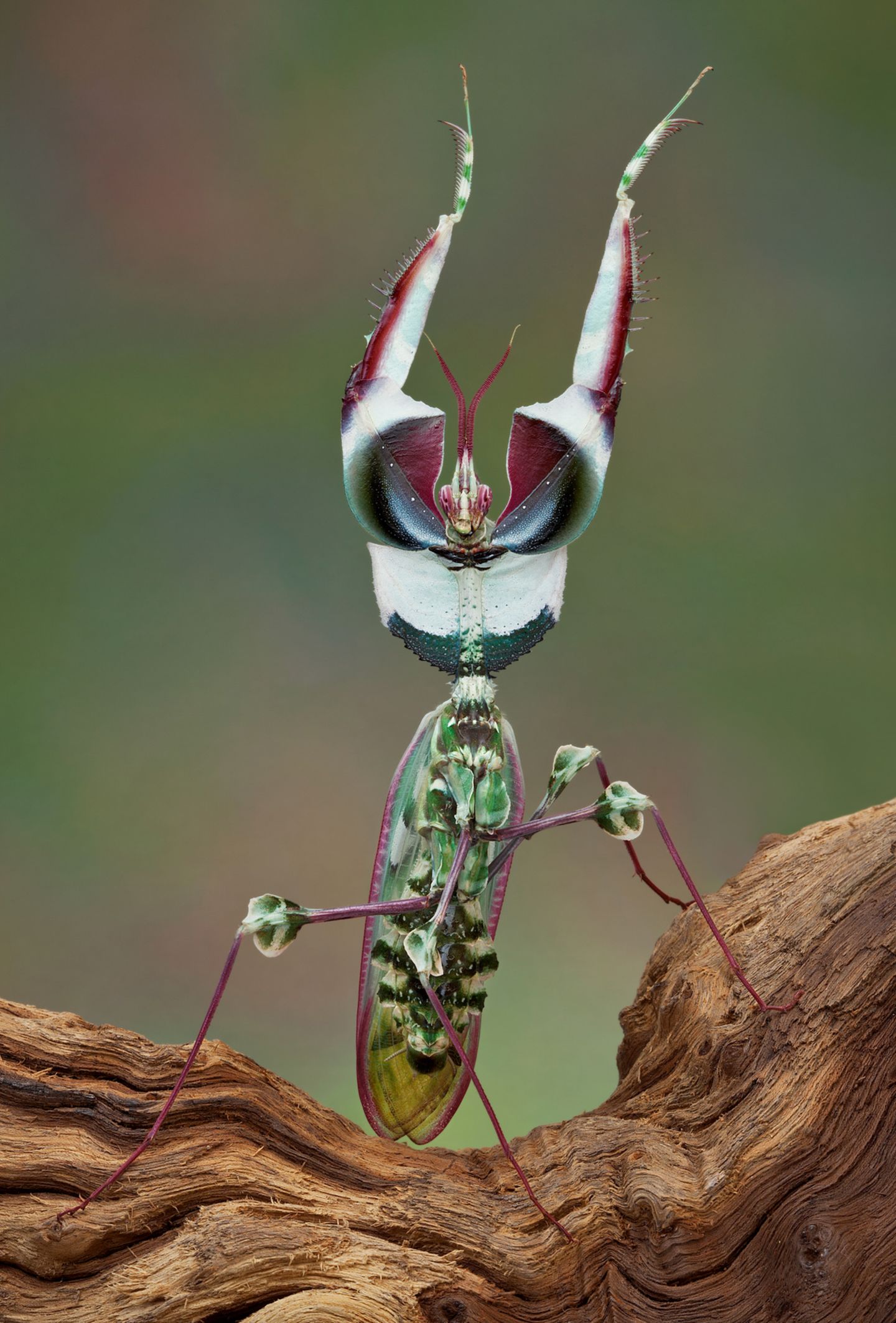
Teufelsblume [GEO]
Source: Wikipedia. Idolomantis diabolica, commonly known as the devil's flower mantis or giant devil's flower mantis, is one of the largest species of praying mantis, possibly the largest that mimics flowers. It is the only species classified under the genus Idolomantis.

Devils Flower Mantis Keeping Insects
[Giant] devil's flower mantis: Central and East Africa Large insect, females as much as 13 cm. Brightly coloured deimatic display in red, white, blue, purple and black. Helvia cardinalis (="Parymenopus davisoni") Yellow flower mantis, Davison's mantis Southeast Asia A slender yellow mantis, the female with three dark spots on the wings.

Pin on Bug
The devils flower mantis is a large species of mantid, with adults reaching lengths of up to 10 cm. They are typically a green or brown color, with dark markings on their wings. This mantis is a carnivorous species, preying on small insects and other invertebrates. They use their long, sharp front legs to capture and kill their prey.
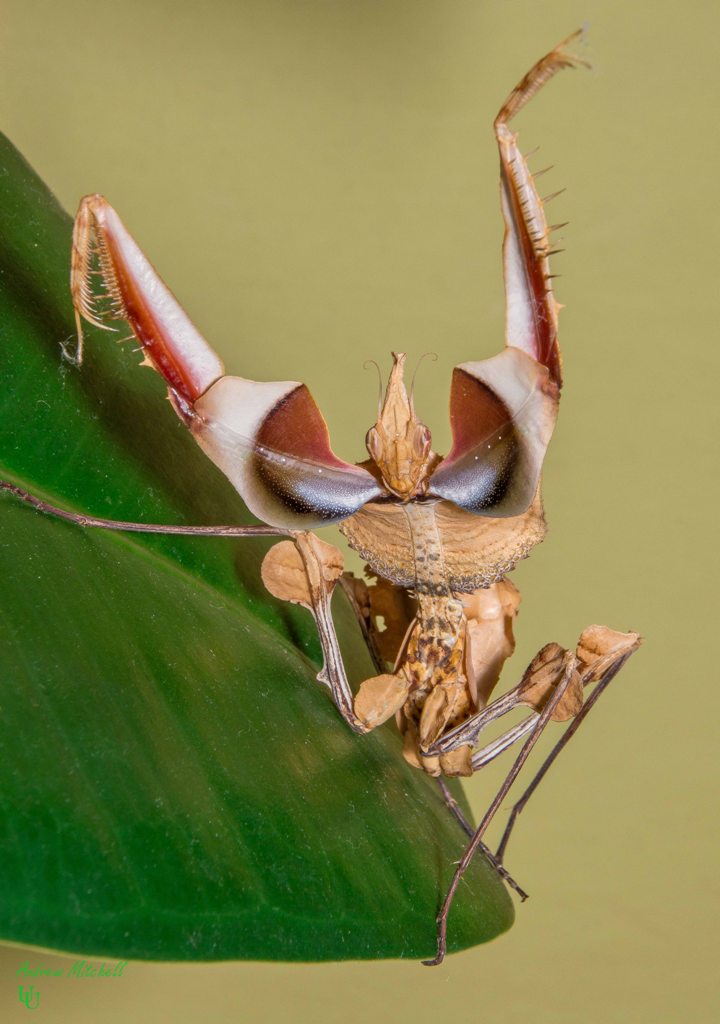
7+ Devil'S Flower Mantis For Sale PatriciaJagjeet
The ideal temperature for the Devils Flower Mantis is very high, around 35 °C (close to 100 degrees Fahrenheit). You can vary it between 32 °C and 40 °C. In this night you can lower the temperature to 20 °C. The best way to heat the enclosure is by using light bulbs. Air humidity is very important for Idolomantis diabolica.
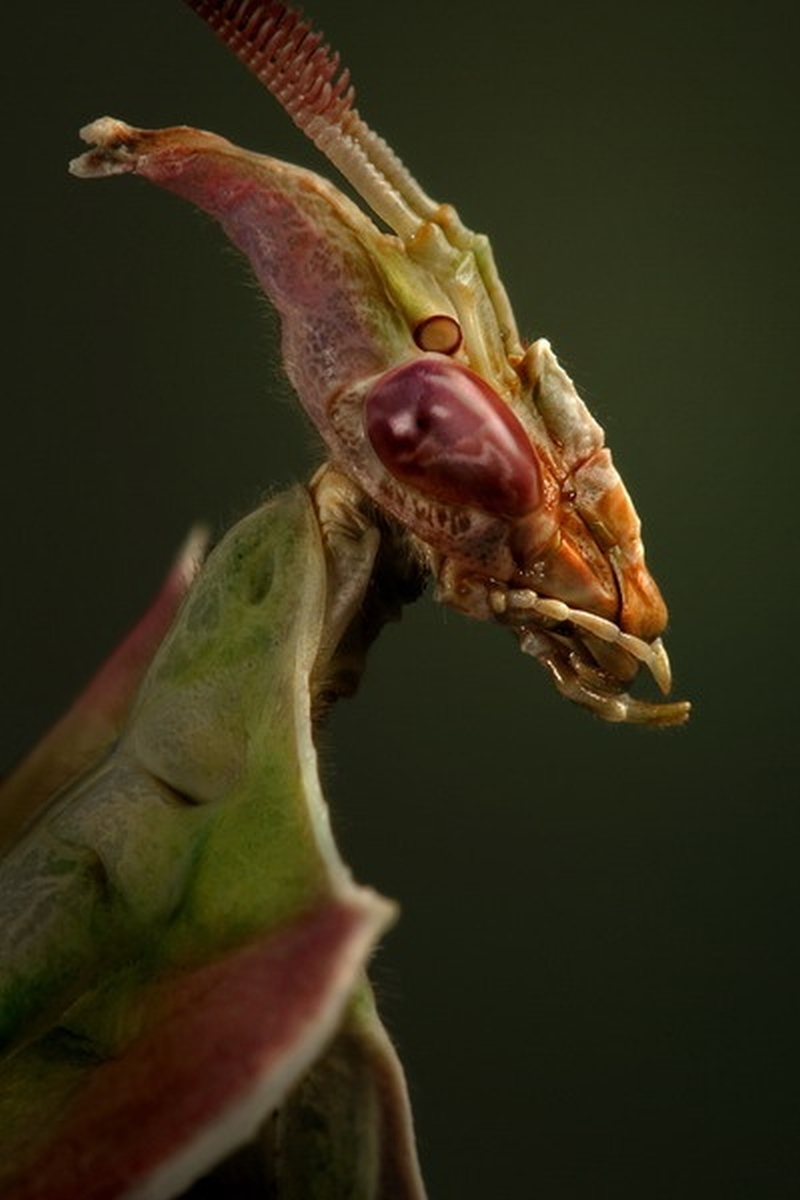
The Nicest Pictures Devil Flower Mantis
The Devil's Flower Mantis, also known as the Giant Devil's Flower Mantis, is one of the largest species of praying mantis, and is believed to be the largest to mimic flowers. Females grow to be about 13 centimetres (about 5 inches) in length and males to about 10 centimetres (about 4 inches). They are native to Ethiopia, Kenya, Malawi, Somalia, Tanzania, and Uganda. Its threat display is.
Devil Flower Mantis. r/macrophotography
The Giant Devil's Flower Mantis is a widespread mantis found across much of Africa. It is known to occur in Ethiopia, Kenya, Somalia, Tanzania and Uganda. In other words, this is a mantis that is used to high temperatures; something which is key to their successful care in captivity. Originally described by Saussure as long ago as 1869.

Devils Flower Mantis Buy [+] MANTIS WORLD
Devil's Flower Mantis Distribution, Habitat, and Ecology. The stunning and amazing Devils Flower Mantis also evolved as native to Kenya, Ethiopia, Somalia, Malawi, Tanzania, and Uganda, in Africa. Like other mantises, it also feeds strictly as a carnivore. In addition, this particular species usually prefers airborne insects.

List Of Devils Flower Mantis Habitat 2022 Boost Wiring
Fun Devil's Flower Mantis Facts. The Idolomantis diabolica was first described in 1869 by Saussure as the Idolum Saussure but has had a few name changes since then. The Devil's Flower Mantis is one of the largest praying mantises and it might be the largest that mimics flowers. The Idolomantis diabolica is the sole member of its genus.
Giant devil's flower mantis, Idolomantis Diabolica r/pics
Best Tankmates For Devil's Flower Mantis. One of the best tankmates for the Devil's Flower Mantis is the African Leaf Insect. Like Idolomantis diabolica, African Leaf Insects are slow-moving and generally docile, providing a peaceful atmosphere in the exhibit.. They also have a similar care requirement and can live for years—long enough to become a beloved companion of the Devil's.

This is An Orchid Mantis 5 Praying Mantis Species That Will Blow Your Mind (or Give You
The Devil's Flower Mantis, also known as Idolomantis diabolica, is an extraordinary and fascinating insect. These enchanting creatures are among the largest praying mantises, renowned for their vibrant colors and unique appearance which closely resembles flowers. They are native to East Africa and are often sought after by insect enthusiasts.
This giant devil's flower mantis looks like one of the aliens from Independence Day. r
Description. Idolomantis diabolica. Female devil's flower mantises grow to a size of 5.1 in (13 cm), while it is 3.9 in (10 cm) for a male. Their mostly green bodies are designed to mimic flowers that help them to camouflage. The head bears the antennae, compound eyes, and mandibles. Thousands of individual photoreceptor cells in its eyes.